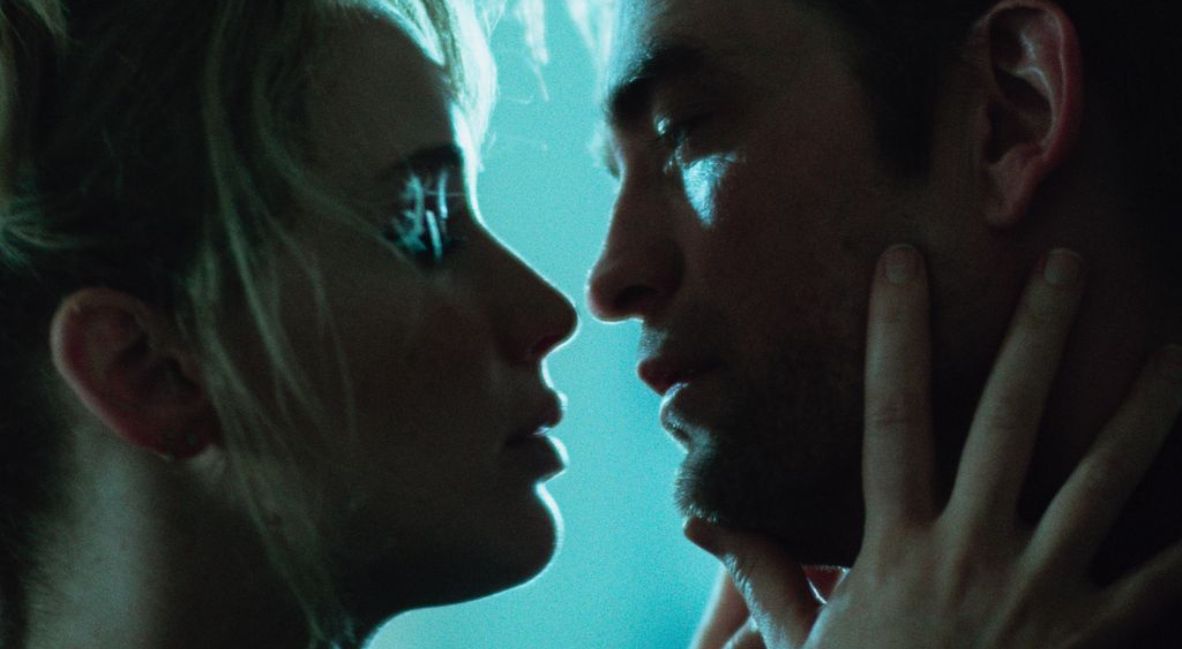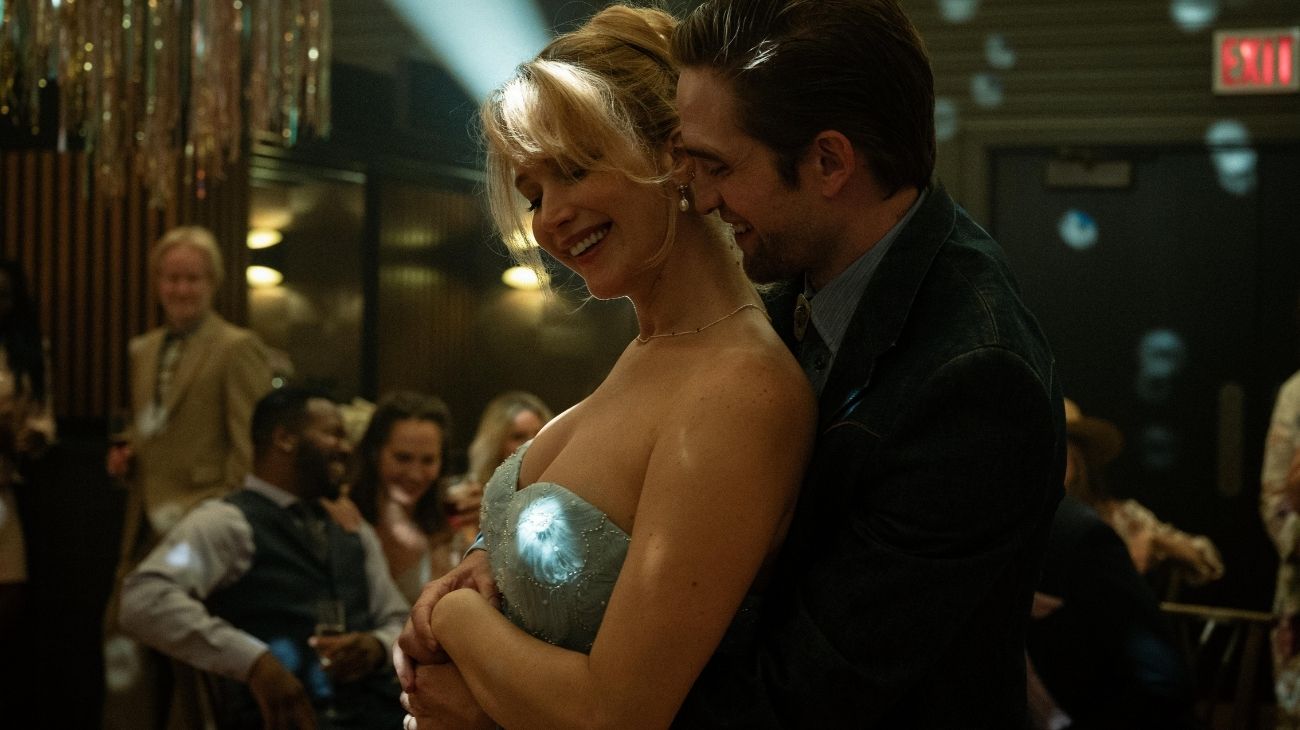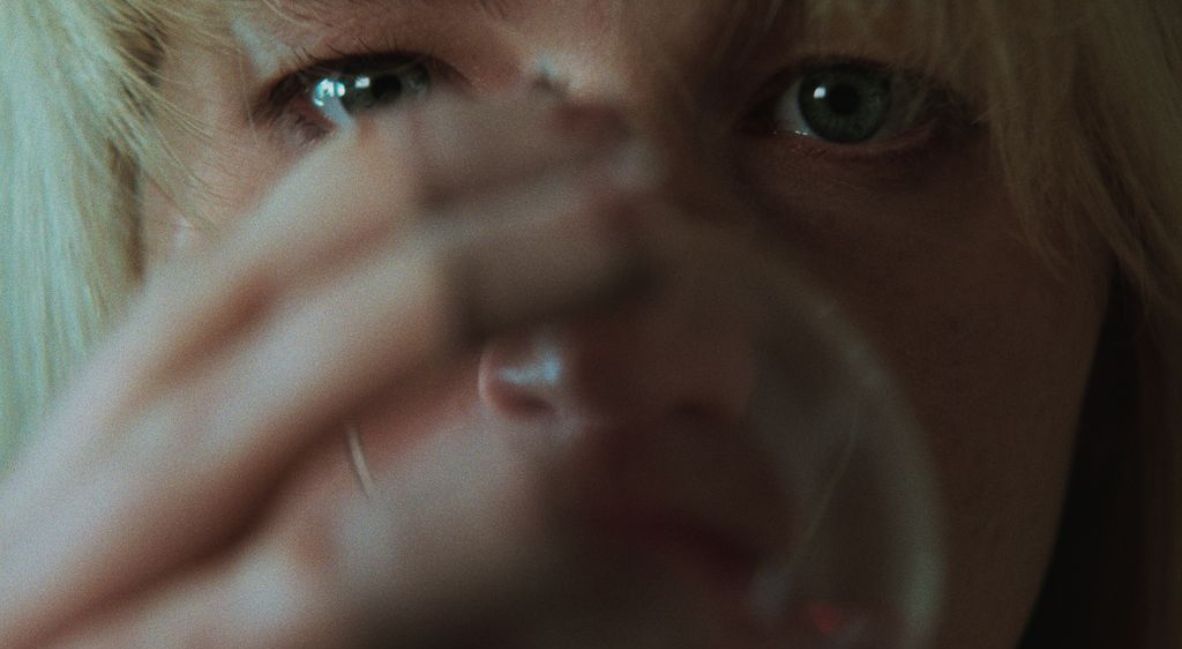Stop me if you’ve heard this one before: Jennifer Lawrence plays a put-upon housewife who moves to a semi-remote home with her husband and starts to lose her mind. No, this isn’t mother! from Darren Aronofsky (Caught Stealing), it’s Die My Love, the long-awaited fifth film from visionary filmmaker Lynne Ramsay.
Whereas Aronofsky’s film was a more symbolic affair that blended theology with an environmental message, Ramsay’s film is direct and confrontational in a very different way. Laying bare the uncomfortable truth of early motherhood and post-partum depression, Die My Love leads with a tour-de-force performance from Jennifer Lawrence that works in tandem with Ramsay’s confrontational filmmaking for a punishing, necessary experience that’s designed to spark conversation.
After a family tragedy, Jackson (Robert Pattinson) moves himself and his partner, Grace (Jennifer Lawrence), to his childhood home in the woods. The couple’s early days in the house are spent in youthful lust, resulting in a pregnancy for Grace. Things change, however, when the baby’s born. A disconnect within Grace evolves into something primal, something disturbing. Her behavior becomes more erratic as she tries to find a kind of peace in the middle of her slipping sanity.
Die My Love shows a woman in the middle of a severe mental health crisis and dares audiences not to look away.

Like all of Lynne Ramsay’s films before, Die My Love looks and feels absolutely terrific. The boxy aspect ratio, as seen through the eyes of cinematographer Seamus McGarvey (The Accountant 2), introduces a claustrophobic feeling from the outset. Within that skewed window, McGarvey contrasts the dim, damp interiors with the surrounding fields where Grace finds her own pockets of bliss.
Editor Toni Froschhammer, in conjunction with brilliant sound design work, maintains a discordant rhythm throughout Die My Love that’s concurrent to Grace’s own growing madness. It’s a film designed to discomfort, where there’s never a safe moment, and Lynne Ramsay never lets up, giving the audience no real sense of security at any moment.
What makes Die My Love stick in the mind is that Lynne Ramsay and screenwriters Ramsay, Enda Walsh, and Alice Birch (Succession Season 2) outright refuse to impart judgment on their characters. Jackson, who Robert Pattinson disappears in, per usual, can come across as callous or lazy at times, with an excuse for everything. At other moments, he seems deeply concerned and involved with trying to make Grace better.
Die My Love is entirely Jennifer Lawrence’s show, and we’re just witnesses to it!

Is he a contradictory figure, a reflection of what Grace sees at home, or both? This is but one of several conversations the viewer will have to have with themselves during and after Die My Love, and that’s what makes Pattinson’s performance and the filmmaking around it so fascinating.
There’s no question about it, though: Die My Love belongs to Jennifer Lawrence wholesale. Lawrence weaponizes her image as a quirky, affable performer to completely subvert it, bringing audiences a protagonist who is consistently hard to watch. At times, Grace is morose. At other times, she’s bubbly.
She’s at once deeply attached to her child and ready to leave everything behind in one second flat. Beneath it all is something primal, something “ugly” bursting to come out of her, one that expresses itself in hypersexuality, semi-homicidal tendencies, and a desire to burn everything around her down.
While other films have attempted to invite audiences into empathy for post-partum depression and early motherhood, including this year’s exceptional If I Had Legs I’d Kick You, none have operated on this level of radical honesty. Die My Love shows a woman in the middle of a severe mental health crisis and dares audiences not to look away.
Die My Love is a tough watch, full of so many elements meant to be analyzed and re-analyzed again.

Lynne Ramsay invites genuine empathy by holding a mirror to not-so-easy-to-swallow human moments. Moreover, Grace’s spiral is portrayed as something that, to the outside world, appears to be a form of torture, but in moments can be a form of rapture. Ramsay doesn’t attempt to cure or fully understand Grace, but to see her. Fully.
Die My Love is a tough watch, full of so many elements meant to be analyzed and re-analyzed again. The function of symbols like a black horse and fire, as well as the entirety of a supporting character played by Sissy Spacek, is not fully explained for the audience, nor are the specifics of Grace’s mental condition. And that’s what makes Lynne Ramsay’s film so vital.
Die My Love presents an unforgettable performance from Jennifer Lawrence that dares audiences to look away from the reality of motherhood that often goes unspoken. For those brave enough to see, it’s a harrowing, utterly transformative experience.
Die My Love is in theaters on November 7, 2025.
Die My Love
-
Rating - 9/109/10
TL;DR
Die My Love presents an unforgettable performance from Jennifer Lawrence that dares audiences to look away from the reality of motherhood that often goes unspoken.







